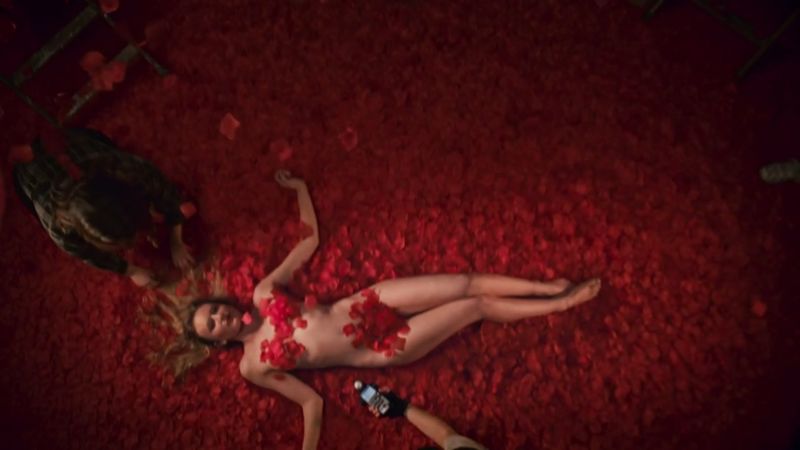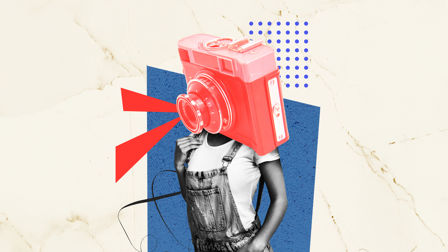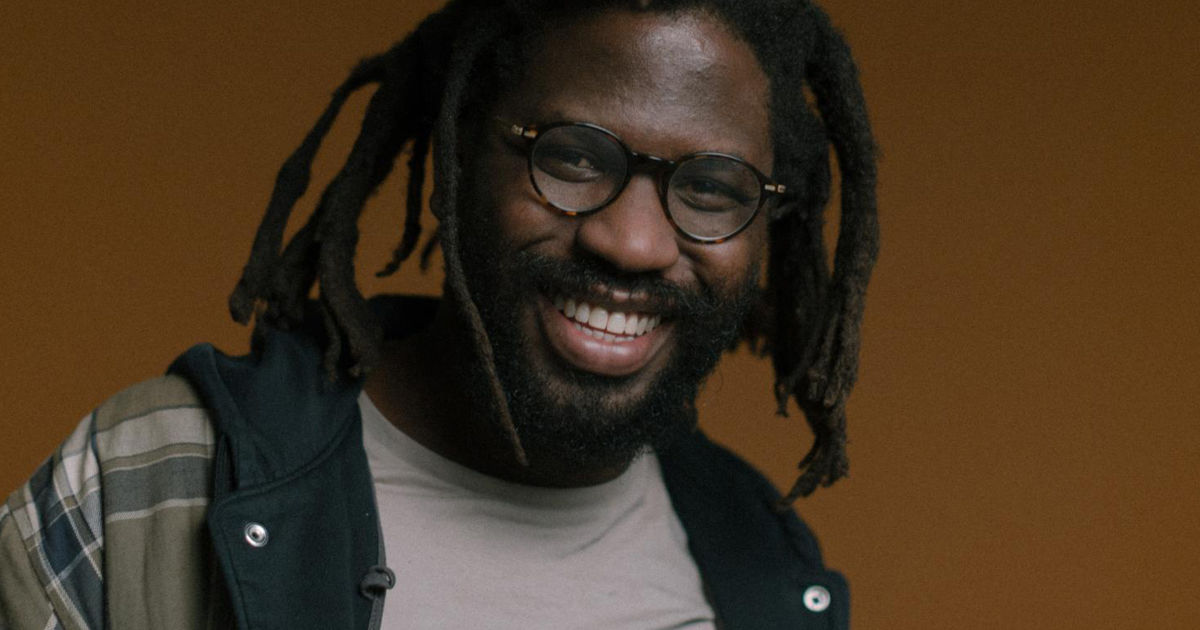Adjani Salmon's comedy of terrors
From editing reality TV shows to making and starring in hit BBC sitcom, Dreaming Whilst Black, Adjani Salmon’s star is on the rise. As he plots his next move into commercials, he tells Selena Schleh how ‘telling jokes about terrible things’ is in his DNA – and why brands need to take risks on new voices.
Life’s good for Adjani Salmon: he’s got a bowl of chips in front of him – and the world at his feet. As the creator and star of BAFTA-winning BBC comedy drama Dreaming Whilst Black – also running on Showtime in the US – Salmon is one of the hottest new talents in TV right now.
But he’s not stopping to rest on his laurels: having recently signed to London-based production company Snapper, the Jamaican-born writer-director is setting his sights on the advertising world.
I don't know whether it’s a coping mechanism, but we [Jamaicans] tell jokes about terrible things! It's just what we do.
“What I like about commercials is, that’s where you play,” says Salmon. “A film is the novel; or if it’s a documentary, it’s the non-fiction book. Whereas a commercial, it’s a poem - and you can make anything from a sonnet to a micro-poem that has four lines. There’s real freedom to express without the conventions.”
Credits
powered by
-
- Production Company BBC Television
- Director Adjani Salmon
-
-
Unlock full credits and more with a Source + shots membership.
Credits
powered by
- Production Company BBC Television
- Director Adjani Salmon
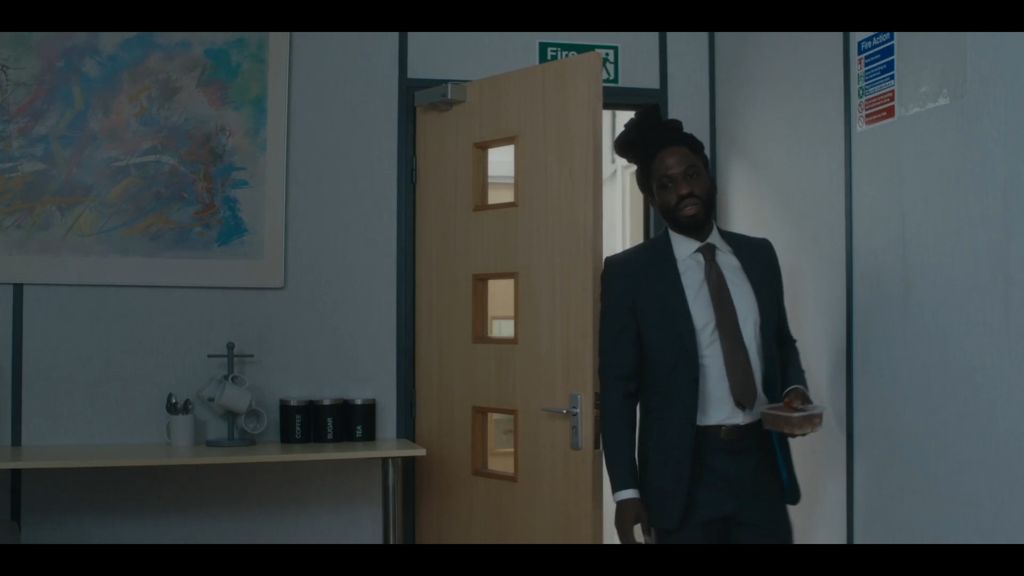
Credits
powered by
- Production Company BBC Television
- Director Adjani Salmon
Salmon's BBC series Dreaming Whilst Black documents excrutiating moments of casual racism.
Salmon’s return to commercials has a pleasing circularity. Before moving to London, he grafted in the ad industry in Jamaica for over a decade – including three years as an editor for Mykal Cushnie, one of the biggest commercial directors in the Caribbean, as well as running his own production company making mainly corporate videos and PSAs.
It’s tempting to assume that Dreaming Whilst Black – which follows a young Black British filmmaker confronted with the harsh realities of trying to make it in the film industry – is autobiographical, but Salmon’s own career path has been very different.
I could only edit stuff I liked, otherwise it felt like really fucking hard work.
An early interest in world-building expressed itself through sketching and model-making, and he was on course to become an architect when his cousin, a film student in the UK, visited Jamaica and the two began making a comedy sketch series. “I’d come up with the idea. Next day, we’d shoot and edit it. Next day, we put it on Vimeo,” remembers Salmon. “We literally did that the entire summer, for 13 weeks straight, and I quickly became obsessed with this new art form.”
Off the back of their success, he scored an assistant editor’s job despite not knowing how to edit (“my cousin had to teach me over Skype”). But he gradually realised that particular aspect of filmmaking was not for him. “I could only edit stuff I liked, otherwise it felt like really fucking hard work. What I do like is being on set, working with the actors, chatting with everybody, playing with the cameras.”
Credits
powered by
-
- Production Company BBC Television
- Director Adjani Salmon
-
-
Unlock full credits and more with a Source + shots membership.
Credits
powered by
- Production Company BBC Television
- Director Adjani Salmon
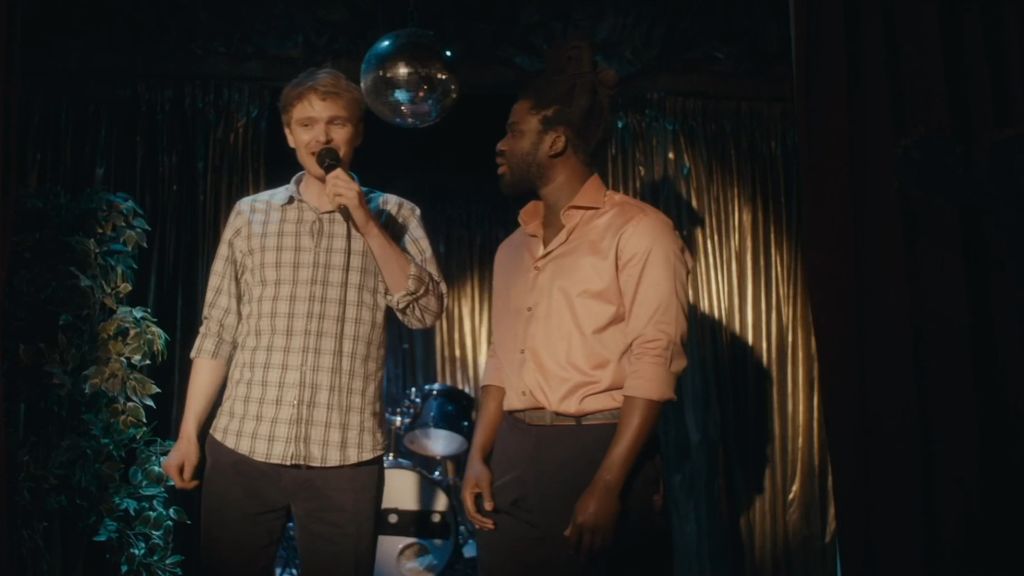
Credits
powered by
- Production Company BBC Television
- Director Adjani Salmon
The karaoke scene from Dreaming Whilst Black is the epitome of toe-curling comedy.
Three years into his filmmaking and editing career in Jamaica, Salmon decided “he’d gone as far as he could” and moved to London for a Master’s in directing at the Met Film School. Surrounded by cinephiles, he felt under pressure for not having “watched all of Scorsese’s films, or any French new wave cinema; I didn’t know about [techniques] like crossing the line or shot/reverse shot or any of that shit” – before he realised that he was making work that was, if not better, then more interesting than theirs.
“I was like: ‘Oh, so THIS is this racism that everyone’s talking about! But it's also very ridiculous, so I'm gonna make fun of it.”
That gave him a much-needed confidence boost to take a leap of faith – ploughing his life savings (and some of his mum’s) into a web series, co-written with Ali Hughes, Dreaming Whilst Black, which would later be adapted into the current TV show, via a BAFTA-winning pilot.
With toe-curling laughs wrung from the casual racism and daily micro-aggressions that typify the Black British experience, the show has been lauded for ripping up the comedy rule book.
In one scene, the lead character Kwabena, played by Salmon, is dragged onstage at office karaoke purely to sing the ‘N’ word during an excruciating rendition of Busta Rhymes’ Break Ya Neck; in another, a bartender assumes Kwabena and another punter are acquaintances. ‘No, we’re just Black’.
Credits
powered by
-
- Production Company BBC Television
- Director Adjani Salmon
-
-
Unlock full credits and more with a Source + shots membership.
Credits
powered by
- Production Company BBC Television
- Director Adjani Salmon
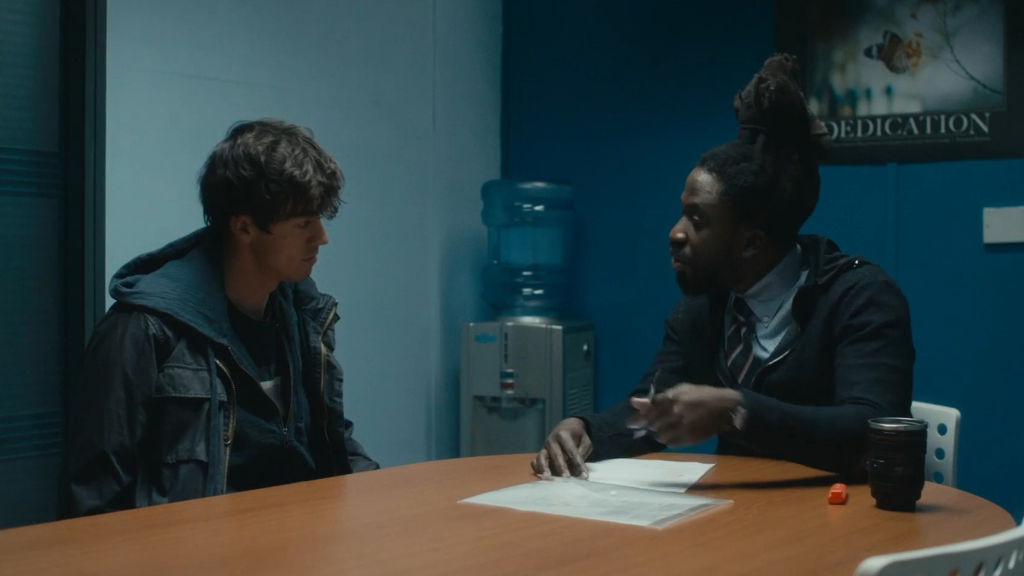
Credits
powered by
- Production Company BBC Television
- Director Adjani Salmon
In Dreaming Whilst Black, Salmon plays a frustrated recruitment consultant.
It might feel like a new frontier for British comedy, but, as Salmon points out, this type of humour is entrenched in Jamaican culture. “I don't know whether it’s a coping mechanism, but we tell jokes about terrible things! It's just what we do. Even someone falling over is funny. Back in high school, if somebody drops, you’re the butt of the joke for the rest of the week.”
He’d only ever encountered racism as an academic concept in Jamaica, so coming to the UK and experiencing behaviour like strangers trying to touch his hair – “I’d literally be walking down the street and see a hand in my periphery and think: what the fuck?”– was a lightbulb moment. “I was like: ‘Oh, so THIS is this racism that everyone’s talking about! But it's also very ridiculous, so I'm gonna make fun of it.”
I do believe that [the show's] form can convert to advertising... I can deliver a super awkward, super cringe 30-second ad.
Does he think DWB’s distinctive humour could translate into the advertising world? “The show’s jokes aren’t 60-second jokes; it’s very much: set it up here, let it linger,” he muses. “But I do believe that form can convert to advertising. The nature of stereotypical British comedy is fast-paced, but if you strip the script back, and instead of trying to give me six, seven jokes in one minute, you give me one or two and make them count, you’re now in my world - and I can [deliver] a super awkward, super cringe 30-second ad.”
Credits
powered by
-
-
- Director Adjani Salmon
-
-
Unlock full credits and more with a Source + shots membership.
Credits
powered by
- Director Adjani Salmon
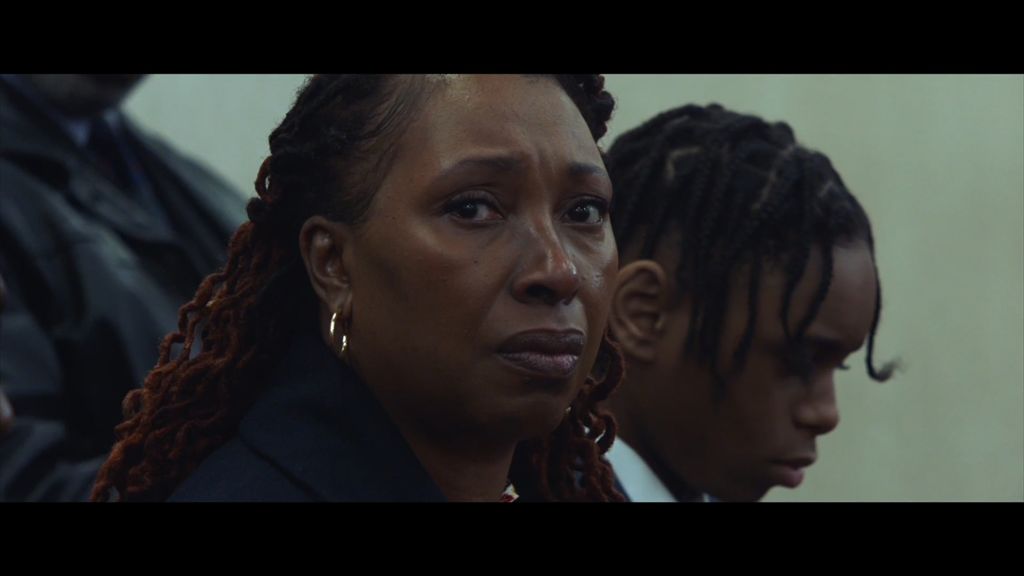
Credits
powered by
- Director Adjani Salmon
Salmon's short film MAI-JERUOM is currently touring the festival circuit.
However, Salmon is quick to emphasise that he’s not ‘just’ a comedy writer. “DWB was strategically comedic, because we realised comedy was the best way to discuss [those themes] but I can move between genres; I really believe in myself as a storyteller.”
His short films bear this out. His Father’s Son - Salmon’s graduation film which screened at numerous international film festivals including Cannes - is a poignant coming-of-age story that examines notions of manhood through the guise of a teenage boy wanting to go for a pint with his dad.
Advertising is of its nature risk averse… but, as my uncle says, great risk, great reward. I took that great leap when I spent my life savings on the web series of DWB.
Meanwhile MAI-JERUOM, currently touring the festival circuit, uses a young man’s impending trial to explore the impact of external events on family dynamics. Both are very different in tone to DWB, but convey the same gift for human observation – and at the end of the day, that’s what makes a good ad, says Salmon.
It’s also why he tends to seek creative inspiration in life, rather than films. “I prefer to hang out with my non-film friends, and just talk about shit, whatever problems we have. Or I try to fuel my mind with different things like literature or theatre or music,” he says. “I came to film not through a love of film, but because it seemed like the most interesting and comprehensive way to tell stories with my particular skillset.”
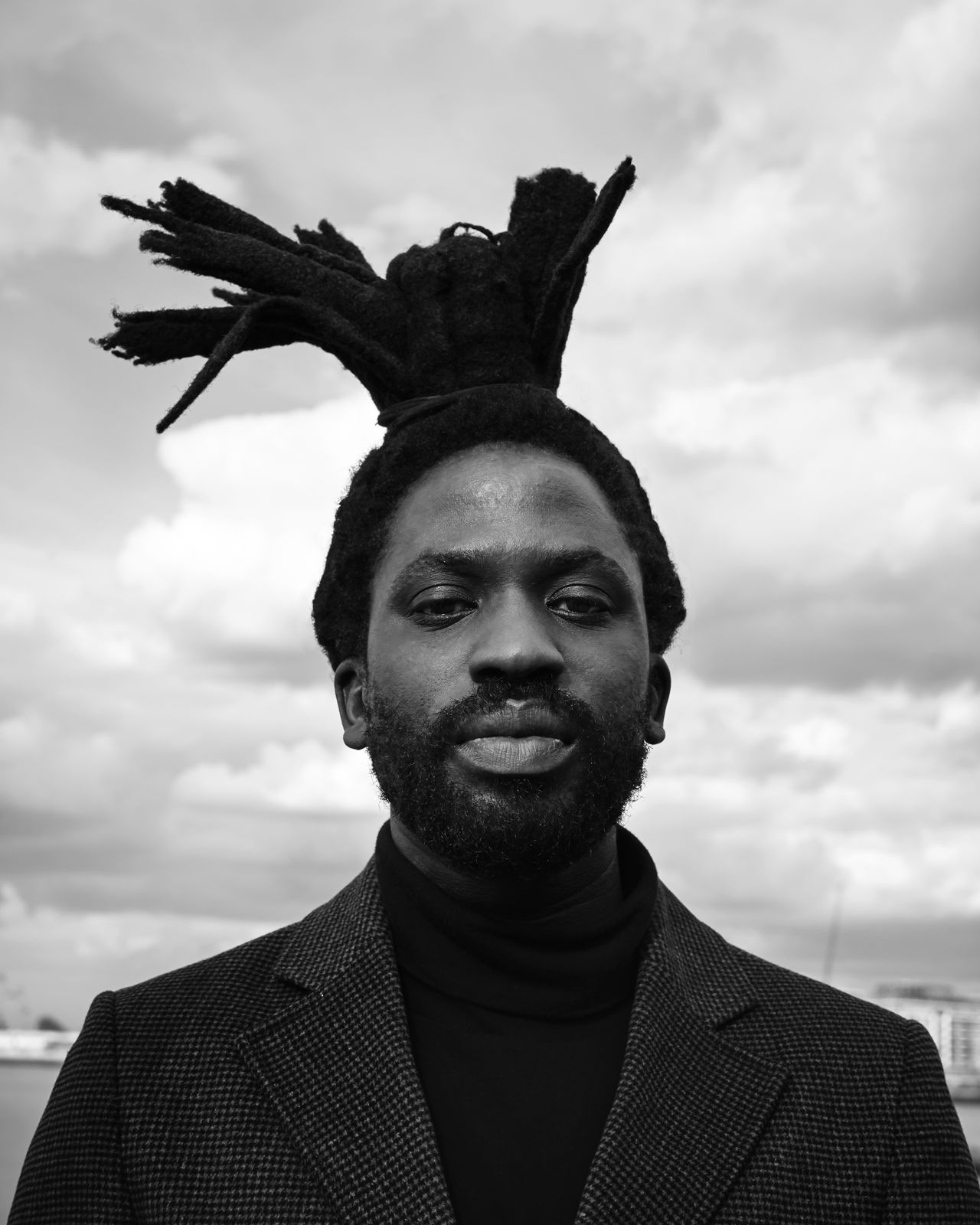
And interesting work is what Salmon feels he can offer brands, too – provided they are prepared to take a risk on new talent. “Advertising is of its nature risk averse… but, as my uncle says, great risk, great reward. I took that great leap when I spent my life savings on the web series of DWB, and the reward is a TV show.
I would love to play with the form: to see how far we could push production; have the camera going crazy.
If brands or agencies continue the ethos of that boldness, and give chances to new voices, inherently, you get a fresh injection of storytelling that you had no access to before.”
What sort of scripts is he hoping will land on his desk? “To be honest, a variety. On one end, I would love to play with the form: to see how far we could push production; have the camera going crazy. The other extreme would be a proper heartfelt story – like when John Lewis ads used to be a thing.”
Advertising isn’t the only path open to Salmon, though; he also has a feature film in development with Film4. Will he be hoping to match the success of DWB? “Nah, man, that sort of pressure cripples creativity.”
There’s really only one question for him at this point, Salmon says. “Now I can do anything, what will I choose to do?” Whatever it is, we can’t wait.
)

